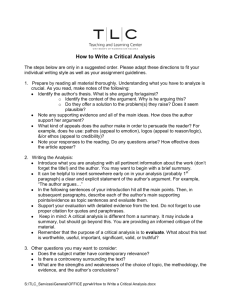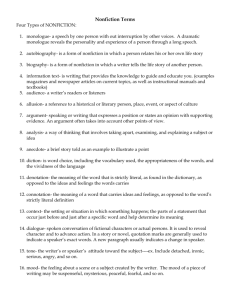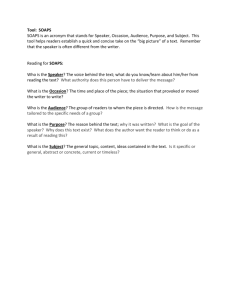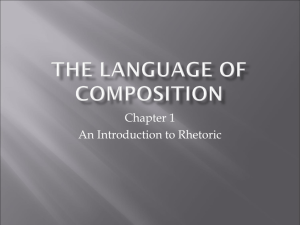A List of Rhetorical Devices
advertisement
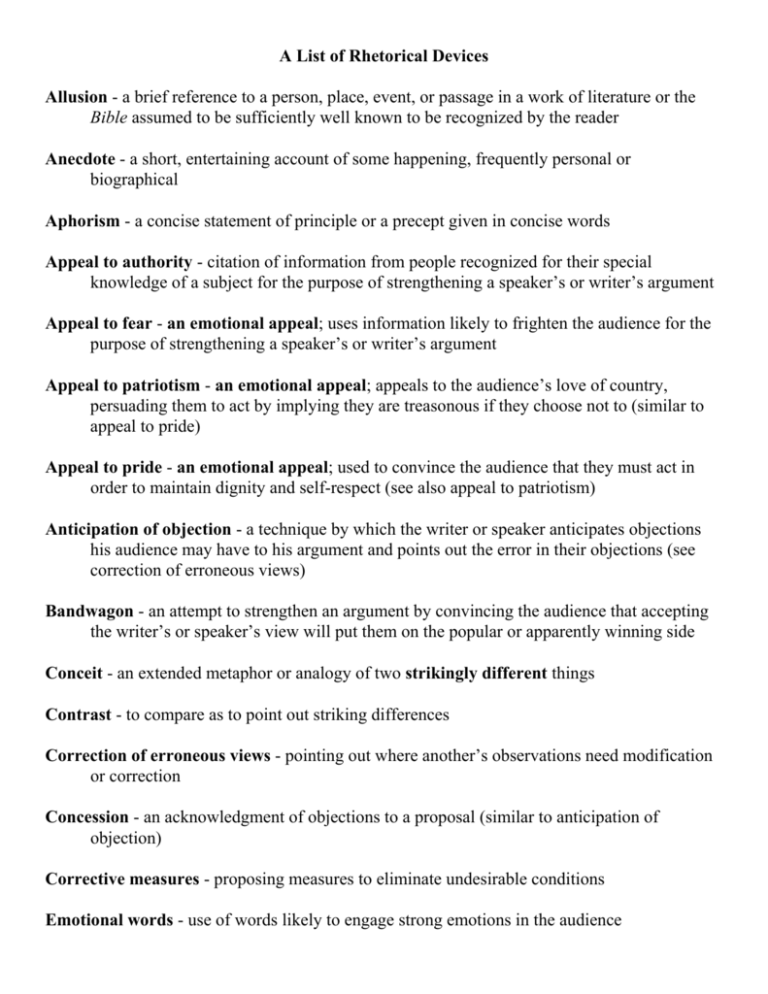
A List of Rhetorical Devices Allusion - a brief reference to a person, place, event, or passage in a work of literature or the Bible assumed to be sufficiently well known to be recognized by the reader Anecdote - a short, entertaining account of some happening, frequently personal or biographical Aphorism - a concise statement of principle or a precept given in concise words Appeal to authority - citation of information from people recognized for their special knowledge of a subject for the purpose of strengthening a speaker’s or writer’s argument Appeal to fear - an emotional appeal; uses information likely to frighten the audience for the purpose of strengthening a speaker’s or writer’s argument Appeal to patriotism - an emotional appeal; appeals to the audience’s love of country, persuading them to act by implying they are treasonous if they choose not to (similar to appeal to pride) Appeal to pride - an emotional appeal; used to convince the audience that they must act in order to maintain dignity and self-respect (see also appeal to patriotism) Anticipation of objection - a technique by which the writer or speaker anticipates objections his audience may have to his argument and points out the error in their objections (see correction of erroneous views) Bandwagon - an attempt to strengthen an argument by convincing the audience that accepting the writer’s or speaker’s view will put them on the popular or apparently winning side Conceit - an extended metaphor or analogy of two strikingly different things Contrast - to compare as to point out striking differences Correction of erroneous views - pointing out where another’s observations need modification or correction Concession - an acknowledgment of objections to a proposal (similar to anticipation of objection) Corrective measures - proposing measures to eliminate undesirable conditions Emotional words - use of words likely to engage strong emotions in the audience Extended metaphor - a protracted metaphor or conceit which makes a series of parallel comparisons (see conceit) Flattery - Using excessive, untrue, or insincere praise in an attempt to ingratiate oneself with the audience, and therefore make them more likely to accept your opinion Holy War - an attempt to convince the audience that God is on the side of the speaker or writer and that failure to side with the speaker’s or writer’s argument will be the equivalent of a failure to defend God Hyperbole - an extravagant exaggeration of fact, used whether for serious or comic effect Imagery - lively descriptions which impress the images of things upon the mind: figures of speech Irony - a method of humorous or sarcastic expression in which the intended meaning of the words is the opposite of their usual meaning (see sarcasm) Last resort - a logical argument (often a fallacy) that attempts to convince the audience that they have no other choice but to accept the writer’s or speaker’s views Logical reasoning - arguing according to the principles of correct reasoning; showing what can be expected because of what has gone before Metonymy - using a part to name the whole, or using the name of one thing for that of another associated with it. e.g. Calling the king, “the throne” or “the crown;” referring to the President as “The White House” Name-calling - the use of disparaging or abusive names to attack those who oppose the speaker or writer Parallelism - using the same part of speech or syntactic structure in (1) each element of a series, (2) before and after coordinating conjunctions (and, but, yet, or, for, nor), or (3) after each of a pair of correlative conjunctions (not only…but also, neither…nor, both…and, etc.) Repetition - repeating words or phrases for emphasis when speaking or writing Rhetorical question - to ask a question of an audience to engage them without having a response from the audience Sarcasm - a taunting, sneering, cutting, or caustic remark (see irony)
